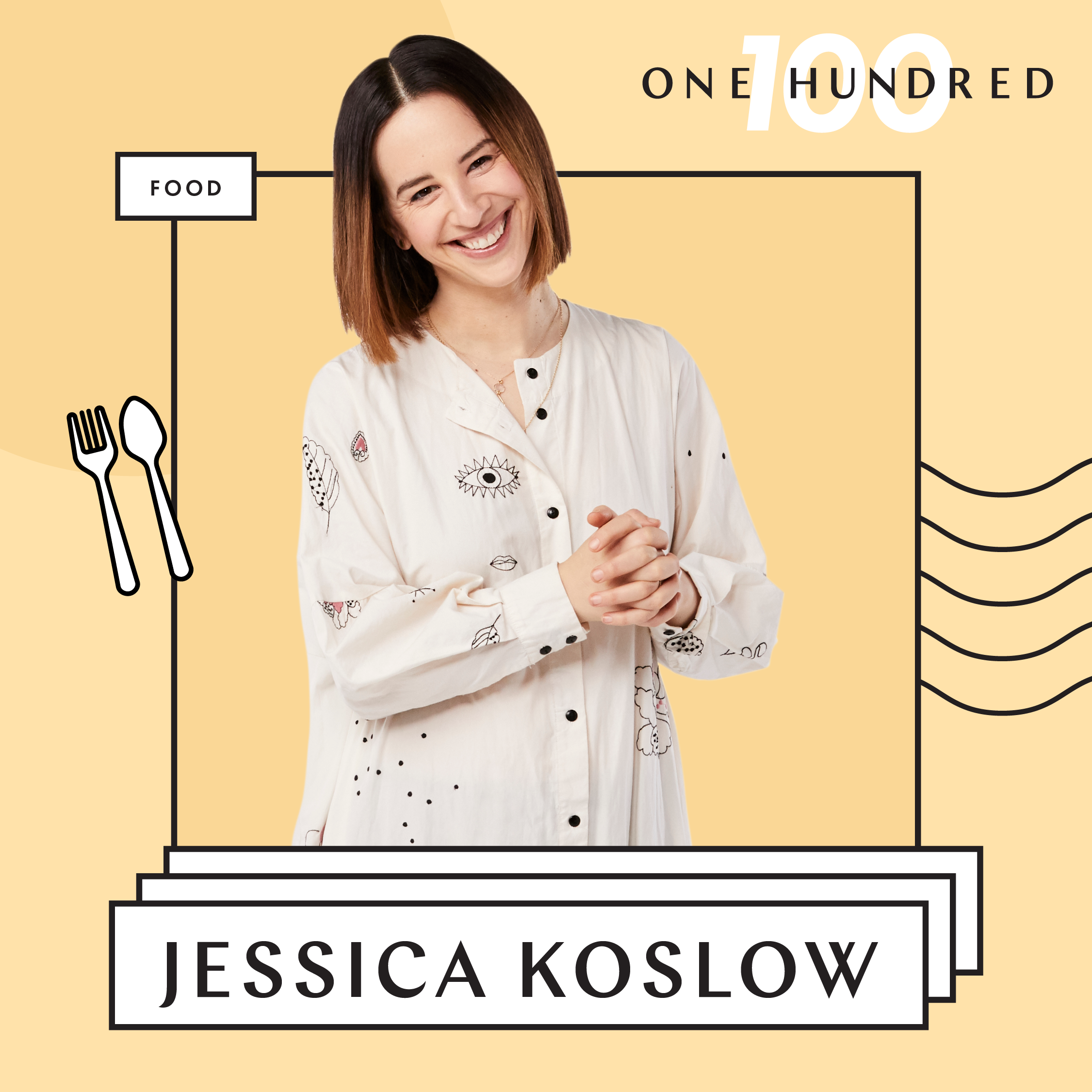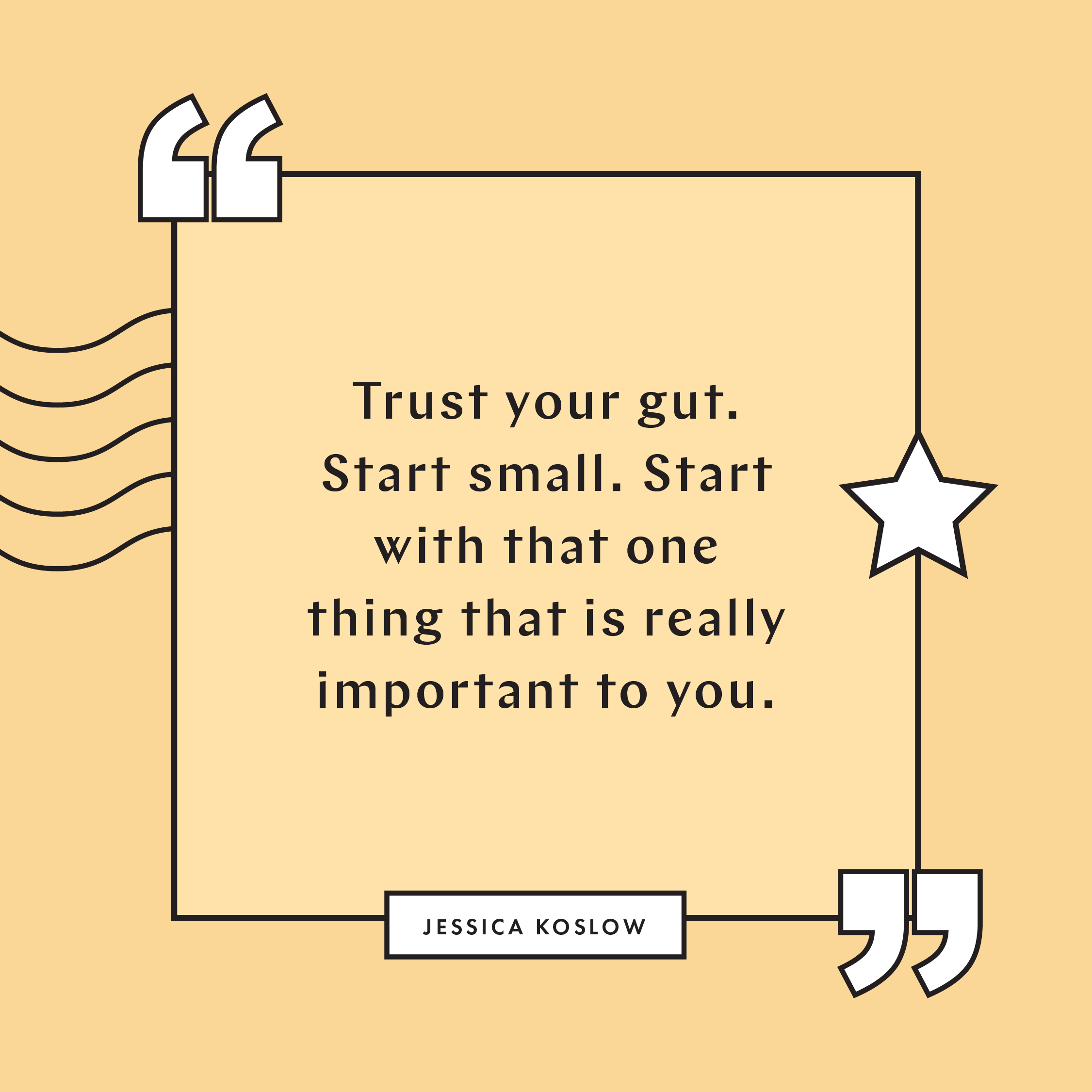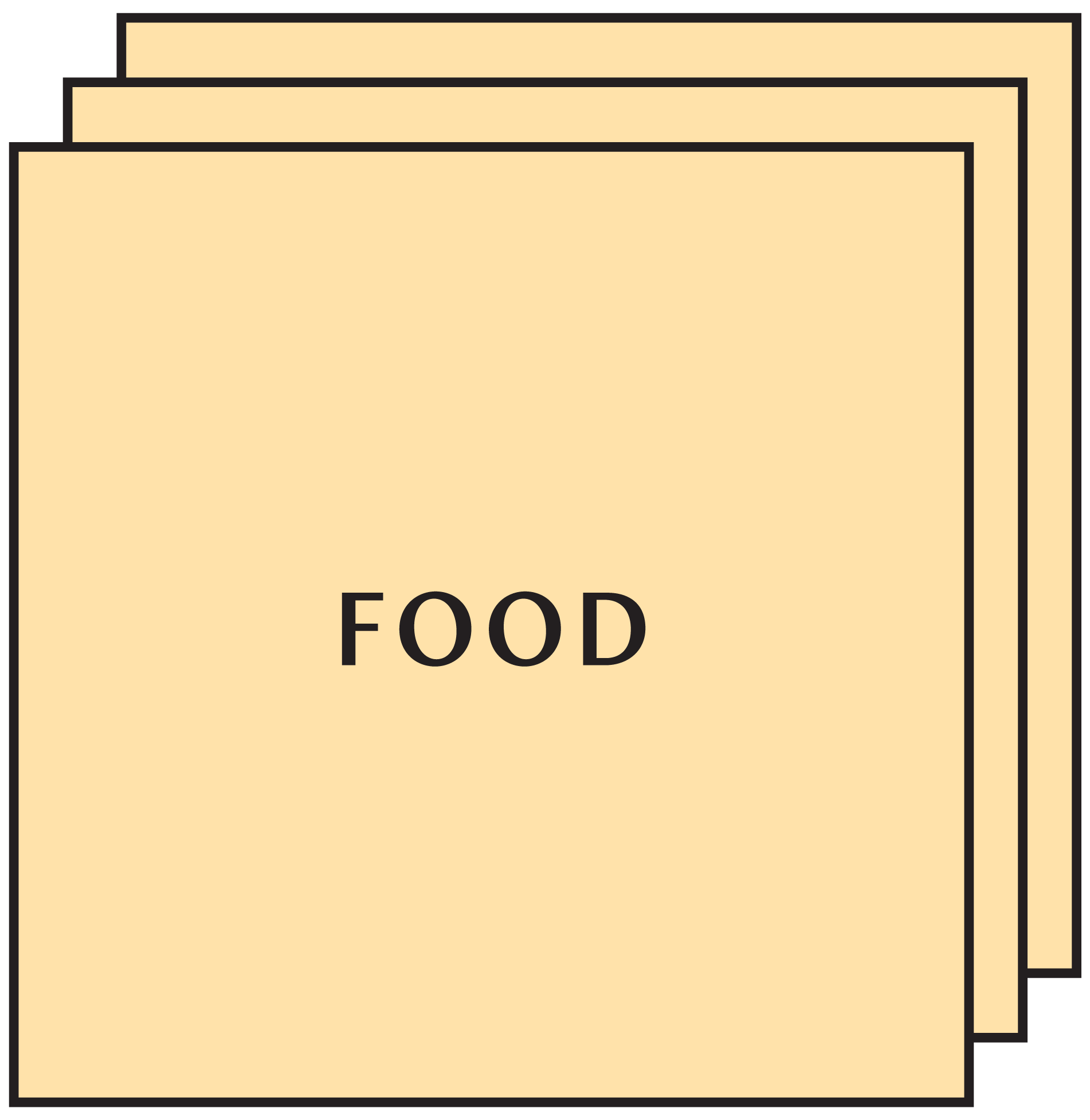Jessica Koslow loved to make jam so when she opened a little eatery in L.A.’s hip Silver Lake neighborhood she had no idea that these fruity spreads would garner a cult following. Now Sqirl has a line of hungry patrons out the door every morning. But she’s since expanded into so much more than delicious conserves.
Koslow joined forces with Gabriela Cámara (one of Mexico’s most important restaurateurs) to create delicious Mexican-inspired meals at her restaurant, Onda on the ground floor of the Santa Monica Proper Hotel. But not one to rest on her laurels, she also launched a P.A.N. (pastry action network) to connect, collaborate, and share pastry chef's from around the world.
Read on to hear all about her journey from figure skater to an acclaimed chef, how she learns from failure, and what's next (just when you thought there wasn’t any room left on her plate!).
CREATE & CULTIVATE: Your restaurant, Sqirl, is an L.A. brunch hotspot with a cult following—there is always a long line out the front—how did you develop the concept? Why do you think it's resonated so much with foodies?
JESSICA KOSLOW: It’s funny because I’m not so much into the word concept—I just wanted to create a place that I’d want to eat at that was also in line with the values of the jam company—working directly with farmers, using organic and naturally processed ingredients—and in a space that matched the specific space I was working in Silver Lake. Sqirl became a project based on the neighborhood—it needed to be an A.M. situation because of all of the artists working from home. And, I think Sqirl is one of the first restaurants to think about how to provide something uniquely delicious during the day. It’s why Sqirl works—it’s creating something unique and different that you can get every day.
Some people might not know that you actually started out as a competitive figure skater—why did you pivot from professional sport to the culinary world? Where does your passion for food stem from?
Well, I skated until I stopped being competitive (in my late teens), and then I was trying to live my life. I took the same passion I had for skating and turned it into a passion for something else. I guess I’m just a passionate person. But, I mean, on a deeper level, when you’re skating, it’s all about eating food to give you calories, and then in college, I befriended a cranberry farmer and a community really interested in food and dining culture, and a whole new curious world of food opened up to me.
“By opening yourself up to failure, you can open yourself up to success—and that’s a really hard thing to say.”
You've been working on the Sqirl Jam Book to showcase your famous jams to the world. What inspired you to create the book? How is it different from other cookbooks? Why do you think jam has become one of your signatures?
The book (which I’m so, so excited about!) is more just about documenting the work we’ve been doing for the last decade. We started out as a jam company, so it’s what our signature thing is—it’s the foundation of Sqirl and everything we do. It’s different from other single-subject jam books because there are true ratios for everything, and we make sure to provide the reader with a consistent product every time. We also show what each jam looks like when it’s done, which is really important.
When you hit a bump or hurdle in your career, how do you #FindNewRoads + switch gears to find success?
By opening yourself up to failure, you can open yourself up to success—and that’s a really hard thing to say.
What advice do you have for other upcoming chefs? How can they achieve the same success you've experienced?
Don’t try to think about a concept—try to think about what is important to you. Trust your gut. Start small. Start with that one thing that is really important to you.
What's a mistake you made and what did you learn from it? How did you turn it into an opportunity?
My biggest learning has been to continue to tap into my value system—trying to not let personality or coolness or charm overshadow value. I guess this can be exemplified specifically with hiring—in the past, and even sometimes now, I’ve hired a perception of talent, but their personality didn’t necessarily align with more core values. This learning process has lead me to become much more centered with the people I bring into Onda and Sqirl, and to listen to who they are and what their core values are and what they bring to the table, ultimately recognizing that core values overshadow talent—they need to come first.
You recently launched a pastry centric event called P.A.N. to connect, collaborate, and share pastry chef's from around the world. What can you tell us about this concept? Why did you do it? What were the best takeaways from your first ever P.A.N. event?
In a world where savory chefs are highly regarded, pastry chefs don’t get that same regard, so P.A.N. is about highlighting pastry chefs and giving them the same level of attention and respect and opportunities to work together, to be the champions for the work that they do. It stems from the belief that they are a vital part of the holistic culinary experience.”
With success comes opportunity but that also means you have your hands full—What keeps you inspired and motivated to keep going even on your most challenging days?
What keeps me going is developing community and what community is to Sqirl, and to Los Angeles, and to a team of people—there’s a connection of place, from the farm to diner to the dynamic group of people in Sqirl's kitchen. That’s what keeps me going—creating a hub of community.
Success is such a broad term and it means something different to everyone. How do you define success
Just being proud of what you do. That’s the hope, isn’t it?
You've been working on a couple of new restaurants, Sqirl Away and Onda. What can you tell us about these new businesses? How did you know it was time to expand? What have you learned in the expansion process?
I’ve learned that I’m very tired. I’ve also learned how to drive again. I thought I was going to expand with Tel, and when Tel stopped, I wasn’t really looking—like many chefs in this city, you get a million calls a day from so many people, and I mean, I never wanted to do it without there being a purpose for doing it.
With Sqirl Away, it became very clear that Sqirl has so much ‘to go, and we needed to develop something that is much more focused on to-go items so that Sqirl can continue to be much more creative and dynamic and weird. It’s not that we want to lose to-go items in Sqirl, but just as the neighborhood’s changing, there’s an expansion in the to-go world that’s a natural off-shoot of what Sqirl’s doing, and I saw very clearly that that could be its own brand, and that I could think about Sqirl Away separately from Sqirl and create more room for innovation.
As for Onda—it was two months after Tel stopped being a thing—I walked into my friend’s space (The Proper Hotel) and saw that it was such a beautiful space, so full of history, and it just sort of fit. It was very strange. All of the puzzle pieces fit and it just happened.
What is the #1 book you always recommend? Why?
I think it changes every year. Right now it’s this book called Journey to the Heart. It’s about this woman who lost her son to cancer and her road back to celebrating life. Every day there’s a different mantra based on what she was going through during those 365 days back to finding herself. It’s really special and I read it every morning. Erin—the GM of Onda—gave me the book and it’s really helped me get through this time of opening this restaurant.
Photographer: Jenna Peffley
Hair: Styled by OGXpert & Celebrity Hairstylist Jillian Halouska
VIEW THE FULL CREATE & CULTIVATE 100 FOOD LIST HERE.















